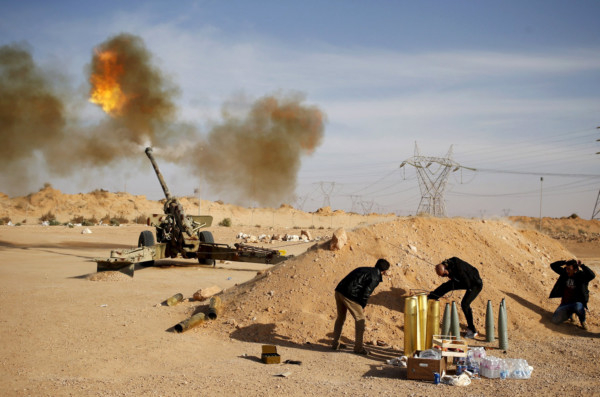
Doha: Libyan warring parties and political leaders will begin a fresh meeting in Algeria on Wednesday discussing ways out of the political crisis which has turned violent.
On Tuesday, the UN envoy for Libya said that there can be “no military solution” to the conflict in the country where rivals cannot “win a war.”
“There’s no military solution” in Libya, UN Support Mission in Libya chief Bernardino Leon told the US-Islamic World Forum in Qatar.
Leon said he believed 75 per cent of political leaders in the strife-torn country wanted peace.
“I think we will see an opportunity [for peace],” he added. “Most groups are now supporting a political solution.”
He said many of the competing factions in Libya were “strong enough to go to war, not strong enough to win a war”.
Three rounds of talks have so far taken place in North Africa, but failed to bring peace.
During April talks in Morocco, Leon and other negotiators said the groups were very close to an agreement on a draft proposal to form a national unity government that would serve for a maximum of two years.
Abdul Kader Messahel, Algeria’s minister for African and Maghreb affairs, said Wednesday’s talks “will be more consequential since new influential Libyan personalities will join.”
Messahel did not elaborate.
Despite Leon’s guarded optimism, the talks take place against a backdrop of increasing fears over the influence of Daesh.
Last month, Daesh took control of the airport in Sirte, former dictator Muammar Gaddafi’s hometown east of Tripoli, after forces belonging to a Tripoli-based rival government withdrew.
On Monday, Libya’s internationally recognised government called for outside help against military advances in the country by the terrorist group and warned of an Iraq-like scenario.
Libya plunged into chaos after the 2011 Nato-backed uprising that toppled and killed Gaddafi, with battle-hardened and heavily armed former rebels carving out their own fiefdoms across the country.












